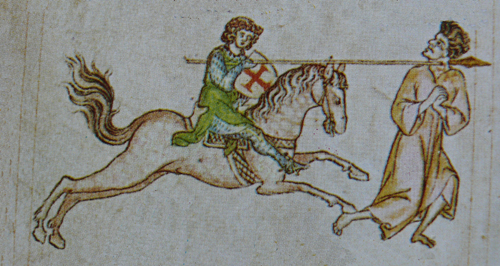Delancey Place has a passage from David Graeber’s great 2011 book, Debt: The First 5,000 Years, about knights, who have been gifted with a sense of gallantry by history and literature that they were not due. An excerpt:
“It was … at the height of the fairs of Champagne and the Italian merchant empires, between 1160 and 1172, that the term ‘adventure’ began to take on its contemporary meaning. The man most responsible for it was the French poet Chretien de Troyes, author of the famous Arthurian romances — most famous, perhaps, for being the first to tell the story of Sir Percival and the Holy Grail. The romances were a new sort of literature featuring a new sort of hero, the ‘knight-errant,’ a warrior who roamed the world in search of, precisely, ‘adventure’ — in the contemporary sense of the word: perilous challenges, love, treasure, and renown. Stories of knightly adventure quickly became enormously popular, Chretein was followed by innumerable imitators, and the central characters in the stories — Arthur and Guinevere, Lancelot, Gawain, Percival, and the rest — became known to everyone, as they are still. This courtly ideal of the gallant knight, the quest, the joust, romance and adventure, remains central to our image of the Middle Ages.
The curious thing is that it bears almost no relation to reality. Nothing remotely like a real ‘knight-errant’ ever existed. ‘Knights’ had originally been a term for freelance warriors, drawn from the younger or, often, bastard sons of the minor nobility. Unable to inherit, many were forced to band together to seek their fortunes. Many became little more than roving bands of thugs, in an endless pursuit of plunder — precisely the sort of people who made [the newly emerging class of] merchants’ lives so dangerous.”
Tags: David Graeber

